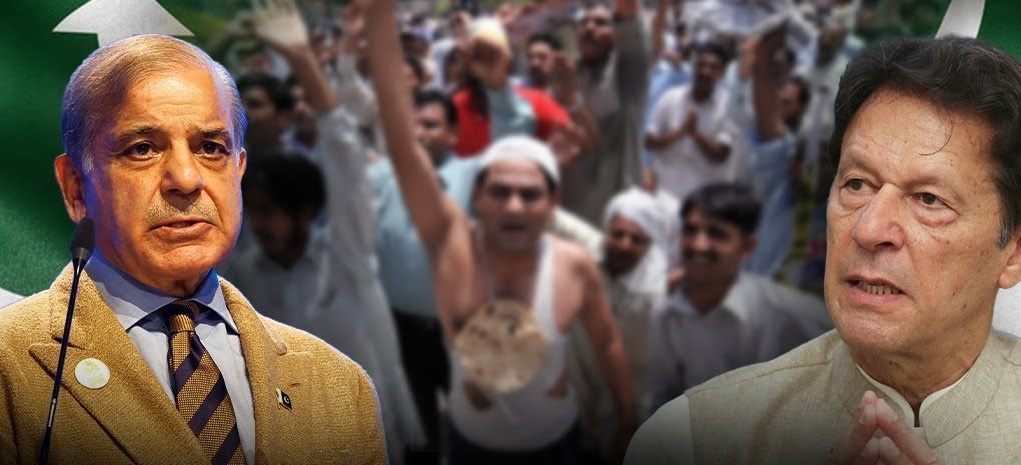It is commonly believed that politicians do not prioritize the concerns of the people, and recent events have done little to dispel this notion. On the contrary, despite their pro-democracy and pro-people rhetoric, their ruthless tactics to defend their limited political interests appear to have brought the country to the verge of collapse.
The deteriorating economy has caused the ruling Pakistan Muslim League (PML-N) and Pakistan People Party (PP) led coalition and the opposition Pakistan Tekreek-e-Pakistan (PTI) to engage in street battles, ignoring their constituents, government and, eventually, democracy. Therefore, neither the IMF nor the so-called “friendly countries” are inclined to assist Pakistan in avoiding an imminent default.
In such an environment, it is not surprising to hear of growing political splits inside the military and judiciary, mirroring the existing polarised state of society. As the nation goes downward, it is unsurprising that both parliament and the government are dysfunctional.
With PTI Chairman Imran Khan seeking immediate elections and the ruling coalition resolutely postponing them, the political climate is reaching a fever pitch. The most important question is whether or not those engaged in this power battle can save Pakistan.
A journalist and political commentator who chooses to remain anonymous feels that both the government and the opposition share responsibility for the current situation but that those in power have a larger need to defuse political tensions. Instead, under the pretext of court orders, the ruling coalition appears to be engaged in revenge politics and detaining political opponents.
The expert blames Imran Khan and his party for failing to condemn party worker violence and asks all parties to discuss a solution to the current instability. However, neither Khan nor his party can fix the country alone.
The ongoing chaos can be traced back to the PTI chief’s decision to leave parliament and take politics to the streets. The analyst believes that, ultimately, Imran will need to negotiate with opponents to resolve the current crisis. Neither side can fix the country alone.
The political conflict has negatively affected the economy. He observes that politics govern Pakistan’s economic policies consistently, which is why the IMF and friendly nations are unwilling to assist during this period of political instability.
New elections may not be the ultimate solution, but they may at least reassure creditors of stability. However, a lawyer in Islamabad notes that the current political turbulence has relegated inflation and economic problems to the bottom of both sides’ priority lists. They warn that deviating from the constitutional path could result in additional political and economic instability.
Many Islemphasizes the need for political stability to achieve economic stability and recommend that the ruling coalition adheres to the Constitution. However, deviating from the constitutional road will only exacerbate the political and economic anarchy, potentially plunging the nation into an irrevocable abyss.
A stable government is necessary for economic stability. So while new elections may not solve the nation’s problems, they would at least signal to creditors that there is a stable government in Islamabad, and the need for political stability to achieve economic stability, urging the ruling alliance to follow the Constitution lest the country be plunged deeper into turmoil.






